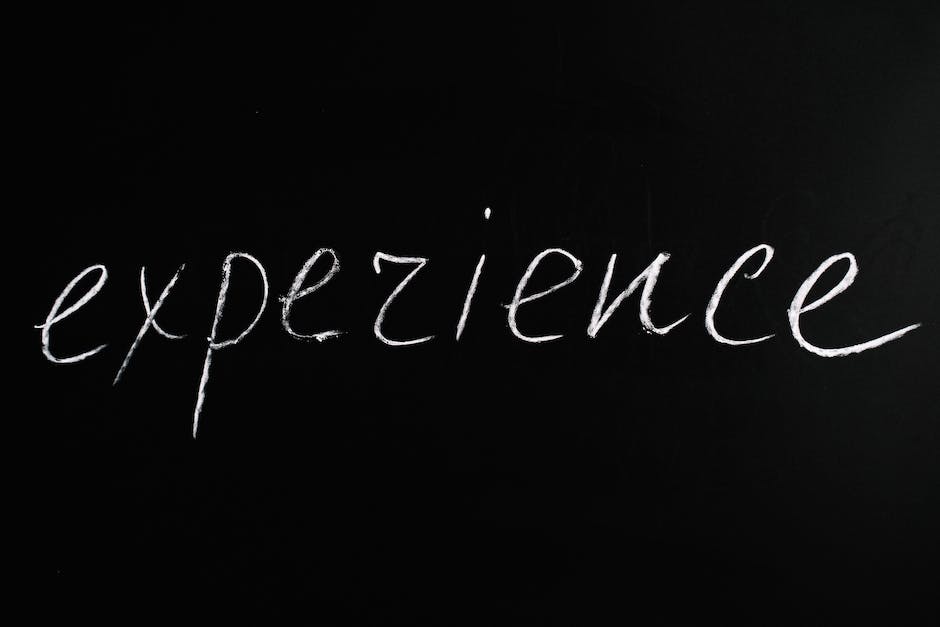Table of Contents
- Introduction
- Advantages of Using Skills-Based CVs
- How to Identify and Highlight Your Key Skills
- Tailoring Your CV to the Job Description
- Showcasing Transferable Skills
- Addressing Employment Gaps with Skills-Based CVs
- Incorporating Keywords for Applicant Tracking Systems
- Examples of Effective Skills-Based CVs
- Tips for Writing a Standout Skills-Based CV
- Q&A
- Conclusion
Unlock your potential with a skills-based CV.
Introduction
Understanding Skills-Based CVs: Is It Necessary for Me?
A skills-based CV is a type of resume that focuses on highlighting the skills and abilities you possess, rather than just listing your work experience. This type of CV can be particularly useful for individuals who are looking to change careers, have gaps in their employment history, or have limited work experience. Understanding how to create a skills-based CV can help you effectively showcase your qualifications and stand out to potential employers.
Advantages of Using Skills-Based CVs
In today’s competitive job market, it is essential to have a standout resume that highlights your skills and qualifications. One way to do this is by using a skills-based CV, which focuses on your abilities and accomplishments rather than just listing your work experience in chronological order. This type of CV can be particularly beneficial for individuals who are looking to change careers, have gaps in their employment history, or have a diverse range of skills that may not be easily captured in a traditional resume format.
One of the main advantages of using a skills-based CV is that it allows you to showcase your most relevant skills and accomplishments upfront. This can be particularly helpful if you are applying for a job that requires specific skills or qualifications, as it allows you to highlight these attributes right at the beginning of your resume. By focusing on your skills rather than just your work experience, you can demonstrate to potential employers that you have the abilities they are looking for, even if you have not gained them through traditional employment.
Another advantage of using a skills-based CV is that it can help you stand out from other candidates. In a sea of resumes that all look the same, a skills-based CV can catch the eye of a hiring manager and make them take notice of your unique qualifications. By highlighting your skills and accomplishments in a clear and concise manner, you can make a strong impression on potential employers and increase your chances of landing an interview.
Additionally, a skills-based CV can be particularly useful for individuals who have gaps in their employment history. Whether you took time off to raise a family, travel, or pursue further education, a skills-based CV allows you to focus on what you have achieved and learned during these periods, rather than drawing attention to the gaps in your work history. This can help to alleviate any concerns that a potential employer may have about your ability to perform in the role, as it demonstrates that you have valuable skills and experiences to bring to the table.
Furthermore, a skills-based CV can be a great option for individuals who have a diverse range of skills that may not fit neatly into a traditional resume format. By organizing your resume based on your skills rather than your work experience, you can showcase the full extent of your abilities and qualifications, regardless of where or how you acquired them. This can be particularly beneficial for individuals who have gained skills through volunteer work, freelance projects, or other non-traditional avenues, as it allows them to highlight these experiences in a way that is clear and compelling to potential employers.
In conclusion, using a skills-based CV can be a valuable tool for individuals who are looking to highlight their qualifications and stand out in a competitive job market. By focusing on your skills and accomplishments rather than just your work experience, you can showcase the full extent of your abilities and increase your chances of landing an interview. Whether you are looking to change careers, have gaps in your employment history, or have a diverse range of skills, a skills-based CV can help you present yourself in the best possible light and demonstrate to potential employers that you have what it takes to succeed in the role.
How to Identify and Highlight Your Key Skills
In today’s competitive job market, having a strong CV is essential to stand out from the crowd and showcase your qualifications and experience. One type of CV that is becoming increasingly popular is the skills-based CV, which focuses on highlighting your key skills and abilities rather than just listing your work experience in chronological order. But is a skills-based CV necessary for you? Let’s explore the benefits and drawbacks of this type of CV to help you make an informed decision.
A skills-based CV is a great option for individuals who have a diverse range of skills and experiences that may not fit neatly into a traditional chronological CV format. By highlighting your key skills at the top of your CV, you can immediately grab the attention of potential employers and show them what you have to offer. This can be particularly useful if you are changing careers or have gaps in your work history that you want to downplay.
One of the main benefits of a skills-based CV is that it allows you to tailor your application to the specific job you are applying for. By focusing on the skills that are most relevant to the position, you can show employers that you have the abilities they are looking for. This can be especially helpful if you are applying for a job in a competitive field where employers are looking for candidates with specific skills and experience.
Another advantage of a skills-based CV is that it can help you to stand out from other applicants who may have similar work experience. By highlighting your key skills and achievements, you can show employers what sets you apart and why you are the best candidate for the job. This can be particularly important if you are applying for a job in a field where competition is fierce and employers are looking for candidates who can demonstrate their value.
However, there are also some drawbacks to using a skills-based CV. One potential downside is that some employers may prefer a more traditional chronological CV format, which lists your work experience in order of most recent to least recent. If you are applying for a job in a field where employers are used to seeing this type of CV, a skills-based CV may not be as well-received.
Additionally, a skills-based CV can be more challenging to create, as you will need to carefully consider which skills to highlight and how to present them in a way that is clear and concise. This can be time-consuming and may require some additional effort on your part to ensure that your CV is well-organized and easy to read.
In conclusion, whether or not a skills-based CV is necessary for you will depend on your individual circumstances and the type of job you are applying for. If you have a diverse range of skills and experiences that you want to highlight, a skills-based CV can be a great option to help you stand out from the crowd. However, if you are applying for a job in a field where employers prefer a more traditional CV format, you may want to stick with a chronological CV. Ultimately, the most important thing is to choose a CV format that best showcases your qualifications and experience and helps you to make a strong impression on potential employers.
Tailoring Your CV to the Job Description

In today’s competitive job market, it is essential to tailor your CV to the specific job you are applying for. One way to do this is by using a skills-based CV, which focuses on highlighting your skills and abilities rather than just listing your work experience in chronological order. But is a skills-based CV necessary for you? Let’s delve into the topic to help you make an informed decision.
Skills-based CVs are particularly useful for individuals who are looking to change careers, have gaps in their employment history, or have a diverse range of skills that may not be easily captured in a traditional CV format. By emphasizing your skills and abilities, you can showcase what you can bring to the table and how you are a good fit for the job, even if your work experience may not directly align with the position.
One of the key benefits of a skills-based CV is that it allows you to highlight your transferable skills, which are skills that can be applied across different industries and roles. This can be particularly helpful if you are looking to transition into a new field or are just starting out in your career. By showcasing your transferable skills, you can demonstrate to potential employers that you have the necessary abilities to succeed in the role, even if you may not have direct experience in that specific area.
Another advantage of a skills-based CV is that it allows you to tailor your application to the job description more effectively. By focusing on the skills and abilities that are most relevant to the position, you can demonstrate to employers that you have the specific qualities they are looking for. This can help you stand out from other candidates who may have similar work experience but may not have highlighted their skills in the same way.
When creating a skills-based CV, it is important to carefully review the job description and identify the key skills and abilities that the employer is looking for. You can then tailor your CV to highlight these specific qualities, providing examples of how you have demonstrated these skills in your previous roles or experiences. By aligning your CV with the job description, you can show employers that you have taken the time to understand their needs and are a strong candidate for the position.
While a skills-based CV can be a powerful tool for showcasing your abilities and tailoring your application to the job description, it may not be necessary for everyone. If you have a strong work history that directly aligns with the position you are applying for, a traditional chronological CV may be more appropriate. However, even if you choose to use a traditional CV format, it is still important to highlight your skills and abilities throughout your application to demonstrate what you can bring to the role.
In conclusion, understanding skills-based CVs and how they can help you tailor your application to the job description is essential in today’s competitive job market. By highlighting your skills and abilities, you can showcase what you can bring to the table and demonstrate why you are a strong candidate for the position. Whether you choose to use a skills-based CV or a traditional format, the key is to effectively communicate your strengths and align your application with the employer’s needs. By doing so, you can increase your chances of standing out to potential employers and securing the job you desire.
Showcasing Transferable Skills
In today’s competitive job market, it is essential to have a strong resume that effectively showcases your skills and qualifications. One popular format that is gaining traction is the skills-based CV. Unlike traditional resumes that focus on work experience and education, a skills-based CV highlights the specific skills and abilities that make you a valuable candidate for a particular role.
So, what exactly is a skills-based CV, and is it necessary for you? Let’s delve into the details to help you understand if this format is the right choice for your job search.
A skills-based CV is a document that emphasizes your skills and abilities over your work experience. Instead of listing your work history in chronological order, you highlight your key skills and accomplishments at the top of the resume. This format is particularly useful for individuals who may have gaps in their work history, are changing careers, or have a diverse range of experiences that may not fit neatly into a traditional resume format.
One of the key benefits of a skills-based CV is that it allows you to showcase your transferable skills. These are skills that can be applied across different roles and industries, such as communication, problem-solving, and leadership. By highlighting these skills at the top of your resume, you can demonstrate to potential employers that you have the abilities they are looking for, even if your work experience may not directly align with the job requirements.
Another advantage of a skills-based CV is that it allows you to tailor your resume to each job application. Instead of sending out a generic resume to multiple employers, you can customize your skills-based CV to highlight the specific skills and experiences that are most relevant to the position you are applying for. This can help you stand out from other candidates and increase your chances of landing an interview.
However, it is important to note that a skills-based CV may not be suitable for every job seeker. If you have a strong work history with relevant experience in your desired field, a traditional chronological resume may be more appropriate. Additionally, some employers may prefer to see a detailed work history to assess your career progression and stability.
Ultimately, the decision to use a skills-based CV depends on your individual circumstances and the specific job you are applying for. If you have a diverse range of experiences and want to highlight your transferable skills, a skills-based CV could be a valuable tool in your job search. On the other hand, if you have a strong work history that aligns closely with the job requirements, a traditional resume may be more effective.
In conclusion, understanding the benefits and limitations of a skills-based CV can help you determine if this format is necessary for your job search. By carefully evaluating your skills, experiences, and career goals, you can make an informed decision on whether a skills-based CV is the right choice for you. Remember, the goal of any resume is to effectively showcase your qualifications and make a strong impression on potential employers.
Addressing Employment Gaps with Skills-Based CVs
In today’s competitive job market, having a strong resume is essential to stand out to potential employers. One type of resume that has gained popularity in recent years is the skills-based CV. This type of resume focuses on the skills and abilities you possess, rather than just listing your work experience in chronological order. Skills-based CVs can be particularly useful for individuals who have employment gaps or are looking to change careers.
One of the main advantages of a skills-based CV is that it allows you to highlight the skills that are most relevant to the job you are applying for. This can be especially helpful if you have a diverse work history or if you are looking to transition into a new field. By focusing on your skills, you can show potential employers that you have the abilities they are looking for, even if your work experience may not directly align with the job requirements.
Another benefit of a skills-based CV is that it can help to address any employment gaps you may have. Whether you took time off to raise a family, travel, or pursue further education, having a gap in your work history can be a red flag for some employers. By emphasizing your skills and abilities, rather than just listing your work experience, you can draw attention away from any gaps in your employment history. This can help to present you in a more positive light to potential employers.
When creating a skills-based CV, it is important to carefully consider which skills to include. Think about the specific requirements of the job you are applying for and tailor your skills to match those requirements. You may also want to include a mix of hard skills, such as technical abilities or certifications, and soft skills, such as communication or problem-solving skills. By showcasing a diverse range of skills, you can demonstrate that you are a well-rounded candidate who is capable of succeeding in a variety of roles.
In addition to highlighting your skills, it is also important to provide evidence of how you have used those skills in previous roles. This could include specific examples of projects you have worked on, achievements you have accomplished, or positive feedback you have received from supervisors or colleagues. By providing concrete examples of your skills in action, you can help to validate your abilities and show potential employers that you are a qualified candidate.
While skills-based CVs can be a valuable tool for addressing employment gaps and showcasing your abilities, they may not be necessary for everyone. If you have a strong work history with no significant gaps and your experience directly aligns with the job you are applying for, a traditional chronological resume may be more appropriate. However, if you are looking to highlight your skills and abilities in a more targeted way, a skills-based CV could be a useful option.
In conclusion, skills-based CVs can be a valuable tool for individuals looking to address employment gaps, change careers, or showcase their abilities in a more targeted way. By focusing on your skills and providing evidence of how you have used those skills in previous roles, you can create a compelling resume that sets you apart from other candidates. While skills-based CVs may not be necessary for everyone, they can be a useful option for those looking to make a strong impression on potential employers.
Incorporating Keywords for Applicant Tracking Systems
In today’s competitive job market, it is essential for job seekers to understand the importance of tailoring their resumes to meet the needs of potential employers. One way to do this is by using a skills-based CV, which focuses on highlighting the specific skills and abilities that are most relevant to the job you are applying for. This type of resume can be particularly useful for individuals who are looking to make a career change or who have gaps in their employment history.
A skills-based CV differs from a traditional chronological resume in that it places less emphasis on your work history and more on your skills and accomplishments. This can be beneficial for individuals who have a diverse range of experiences or who have taken on a variety of roles throughout their career. By focusing on your skills, you can demonstrate to potential employers that you have the abilities they are looking for, even if your work history may not directly align with the job requirements.
One of the key benefits of using a skills-based CV is that it allows you to incorporate keywords that are relevant to the job you are applying for. Many companies use applicant tracking systems (ATS) to screen resumes and identify candidates who meet specific criteria. By including keywords that are commonly used in the job description, you can increase the likelihood that your resume will make it through the initial screening process and be seen by a human recruiter.
When incorporating keywords into your skills-based CV, it is important to be strategic in your approach. Start by carefully reviewing the job description and identifying the key skills and qualifications that are required for the position. Then, make a list of these keywords and ensure that they are prominently featured throughout your resume. This can include including them in your skills summary, work experience descriptions, and even in your education section if relevant.
In addition to incorporating keywords, it is also important to provide specific examples of how you have demonstrated these skills in previous roles. This can help to provide context for the recruiter and demonstrate that you have the experience and abilities necessary to excel in the position. For example, if the job description lists “strong communication skills” as a requirement, you could provide examples of how you have effectively communicated with colleagues, clients, or stakeholders in previous roles.
Overall, using a skills-based CV can be a valuable tool for job seekers who are looking to stand out in a competitive job market. By focusing on your skills and accomplishments, you can demonstrate to potential employers that you have the abilities they are looking for, even if your work history may not directly align with the job requirements. Additionally, by incorporating keywords that are relevant to the job description, you can increase the likelihood that your resume will make it through the initial screening process and be seen by a human recruiter. By taking a strategic approach to crafting your skills-based CV, you can increase your chances of landing your dream job.
Examples of Effective Skills-Based CVs
In today’s competitive job market, having a strong CV is essential to stand out from the crowd and showcase your skills and experience to potential employers. One type of CV that has gained popularity in recent years is the skills-based CV. Unlike traditional chronological CVs, which list your work experience in reverse chronological order, skills-based CVs focus on highlighting your key skills and accomplishments.
Skills-based CVs are particularly useful for individuals who may have gaps in their work history, are changing careers, or have a diverse range of skills and experiences that may not be easily captured in a traditional CV format. By emphasizing your skills and achievements, rather than just listing your work history, a skills-based CV can help you demonstrate your value to potential employers and make a strong impression.
One of the key benefits of a skills-based CV is that it allows you to tailor your CV to the specific job you are applying for. By highlighting the skills and experiences that are most relevant to the position, you can show employers that you have the qualifications and abilities they are looking for. This can be particularly helpful if you are applying for a job in a new industry or are looking to transition into a different role.
When creating a skills-based CV, it is important to carefully consider which skills and experiences to include. Start by making a list of your key skills, such as communication, leadership, problem-solving, and technical skills. Then, think about specific examples from your work experience, education, or volunteer work that demonstrate how you have used these skills in a professional setting.
For example, if you are applying for a project management role, you might highlight your experience leading cross-functional teams, managing budgets, and delivering projects on time and within budget. By providing concrete examples of how you have successfully applied your skills in the past, you can show employers that you have the expertise and capabilities they are looking for.
In addition to highlighting your skills and experiences, a skills-based CV should also include a brief summary of your professional background and qualifications. This can help provide context for your skills and experiences and give employers a better understanding of your overall career trajectory.
When formatting your skills-based CV, it is important to keep it clear, concise, and easy to read. Use bullet points to list your key skills and accomplishments, and use a clean, professional font and layout. Be sure to proofread your CV carefully to ensure there are no typos or errors, as these can detract from your professionalism and attention to detail.
Overall, a skills-based CV can be a valuable tool for showcasing your skills and experiences to potential employers. By focusing on your key skills and accomplishments, tailoring your CV to the specific job you are applying for, and presenting your information in a clear and professional manner, you can make a strong impression and increase your chances of landing the job you want.
Tips for Writing a Standout Skills-Based CV
In today’s competitive job market, it’s essential to have a standout CV that highlights your skills and experiences effectively. One popular format that many job seekers are turning to is the skills-based CV. This type of CV focuses on your skills and abilities rather than just listing your work experience in chronological order. But is a skills-based CV necessary for you? Let’s delve into the details to help you make an informed decision.
Skills-based CVs are particularly useful for individuals who are looking to change careers, have gaps in their employment history, or have a diverse range of skills that may not be adequately showcased in a traditional CV. By highlighting your key skills and achievements upfront, you can grab the attention of potential employers and demonstrate your suitability for the role.
One of the main advantages of a skills-based CV is that it allows you to tailor your application to the specific job you are applying for. By focusing on the skills that are most relevant to the role, you can show employers that you have the capabilities they are looking for. This can be particularly beneficial if you are applying for a job in a new industry or are looking to transition into a different role.
Another benefit of a skills-based CV is that it can help you stand out from the crowd. With so many applicants vying for the same positions, having a CV that showcases your unique skills and abilities can make a big difference. Employers are often looking for candidates who can bring something different to the table, and a skills-based CV can help you demonstrate your value in a clear and concise way.
However, it’s important to note that a skills-based CV may not be suitable for everyone. If you have a long and stable work history in a particular field, a traditional chronological CV may be more appropriate. Employers may also prefer to see a clear progression of your career over time, which can be more easily demonstrated in a traditional CV format.
When deciding whether to use a skills-based CV, it’s important to consider the specific requirements of the job you are applying for. If the job description emphasizes certain skills or competencies, a skills-based CV may be the best way to showcase your suitability for the role. On the other hand, if the employer is looking for a candidate with a strong track record of experience in a particular field, a traditional CV may be more appropriate.
In conclusion, a skills-based CV can be a valuable tool for showcasing your skills and abilities in a clear and concise way. It can help you tailor your application to the specific job you are applying for and stand out from the competition. However, it’s important to consider your own circumstances and the requirements of the job before deciding whether a skills-based CV is necessary for you. By weighing the pros and cons and making an informed decision, you can create a CV that effectively highlights your strengths and maximizes your chances of landing your dream job.
Q&A
1. What is a skills-based CV?
A skills-based CV focuses on your skills and abilities rather than your work experience.
2. When should I use a skills-based CV?
You should use a skills-based CV if you have limited work experience or if you are changing careers.
3. What are the benefits of using a skills-based CV?
A skills-based CV allows you to highlight your relevant skills and abilities, making it easier for employers to see how you are a good fit for the job.
4. How do I format a skills-based CV?
In a skills-based CV, you should list your skills and abilities at the top of the document, followed by your work experience and education.
5. What skills should I include in a skills-based CV?
You should include skills that are relevant to the job you are applying for, such as communication skills, problem-solving skills, and technical skills.
6. How do I tailor my skills-based CV to a specific job?
To tailor your skills-based CV to a specific job, you should carefully read the job description and include skills that are mentioned in the job posting.
7. Can I still include my work experience in a skills-based CV?
Yes, you can still include your work experience in a skills-based CV, but it should be listed after your skills and abilities.
8. Is it necessary for me to use a skills-based CV?
It is not necessary to use a skills-based CV, but it can be helpful if you want to highlight your skills and abilities in a clear and concise way.
Conclusion
Understanding skills-based CVs is necessary for individuals who want to highlight their relevant skills and experiences in a clear and concise manner. By using this type of CV, you can effectively showcase your qualifications and abilities to potential employers, increasing your chances of landing the job you desire. In conclusion, having a good understanding of skills-based CVs is essential for anyone looking to stand out in the competitive job market.




